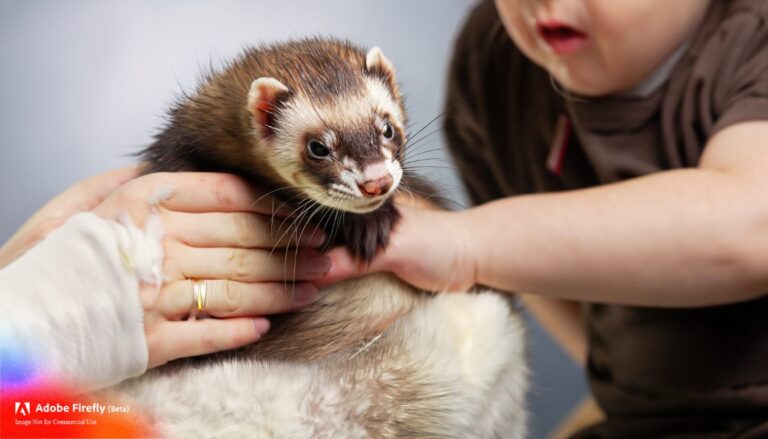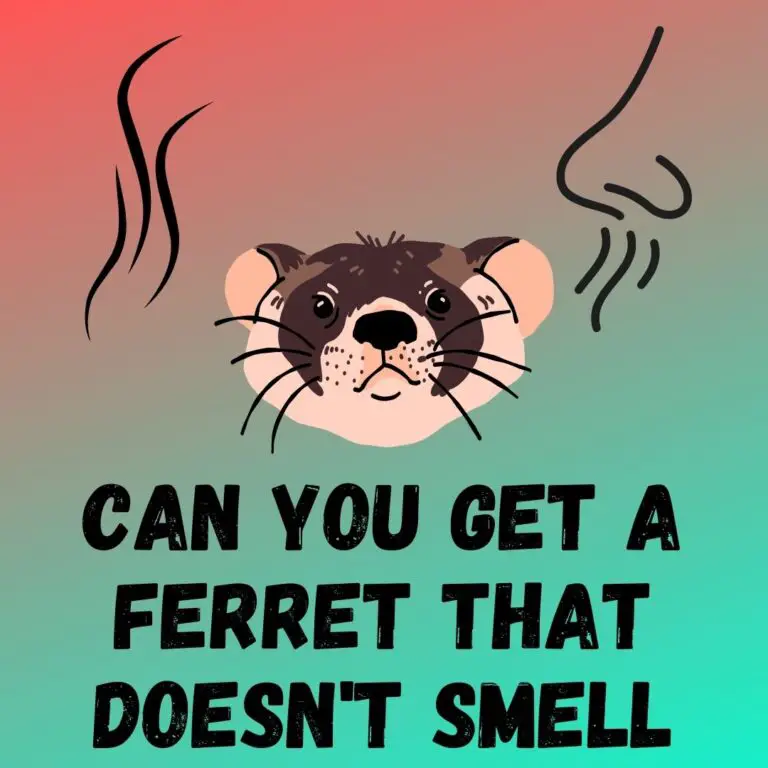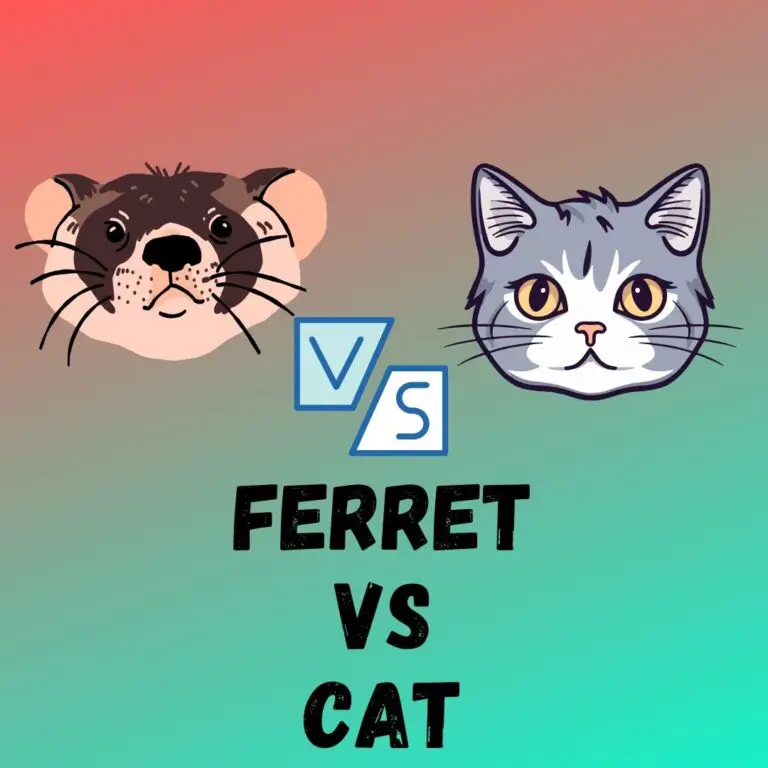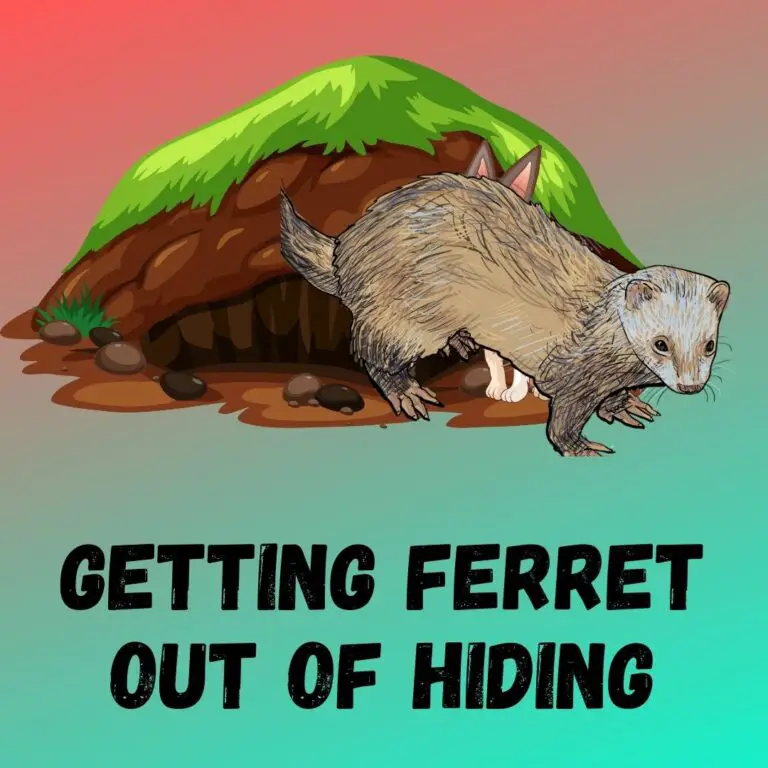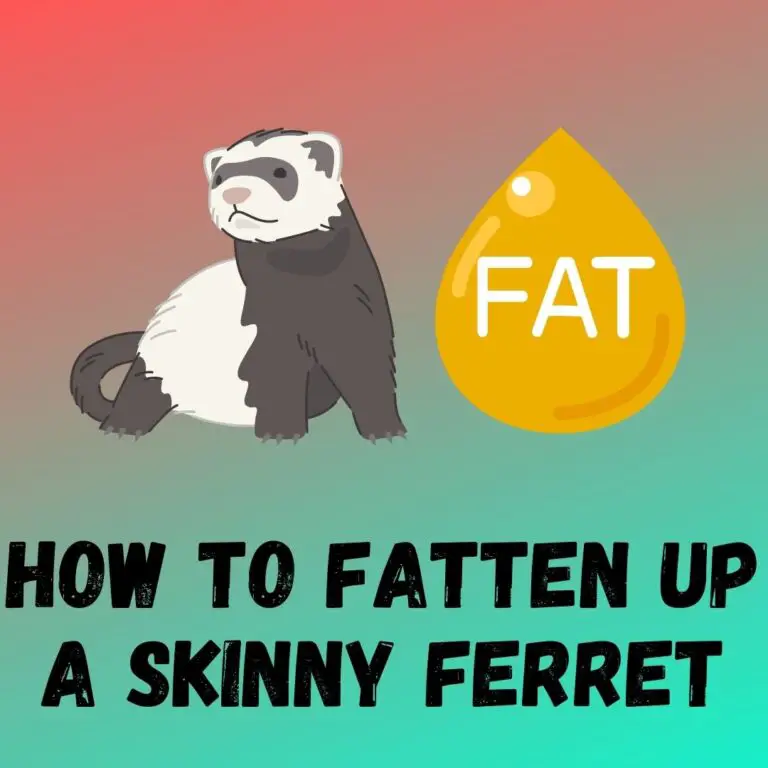
Have you ever noticed your ferret yawning when you scruff them? It’s a curious behavior that many ferret owners have observed, but what exactly does it mean? In this article, I’ll delve into the fascinating world of ferret behavior to uncover the reasons behind this peculiar yawning phenomenon.
First and foremost, it’s important to understand that scruffing is a common practice among ferret owners for various reasons, such as grooming or administering medication. But why do ferrets often respond to being scruffed with a yawn? Is it a sign of discomfort or pain? I’ll address these questions and more as we explore the intricacies of ferret behavior and the potential effects of scruffing on our furry friends.
So, if you’ve ever wondered why your ferret yawns when you scruff them, or if scruffing actually hurts them, you’ve come to the right place. Get ready to uncover the secrets behind this intriguing behavior and gain a deeper understanding of your ferret’s needs and reactions. Let’s dive in and discover the truth about ferret yawning and scruffing.
Understanding Ferret Behavior
When it comes to understanding why ferrets yawn when they are scruffed, it’s important to have a basic understanding of ferret behavior. These adorable little creatures have their own unique ways of communicating and reacting to different situations.
Ferret yawning behavior, particularly when scruffed, can be a fascinating topic to explore. While it may seem strange or even concerning at first, there are a few key reasons why ferrets yawn when they are scruffed.
Firstly, yawning in ferrets is often a sign of relaxation and contentment. Scruffing, when done properly, can actually induce a feeling of relaxation in ferrets, similar to how a gentle massage can make us feel more at ease. The sensation of being scruffed can trigger a reflex that leads to a yawn as the ferret becomes more relaxed.
Additionally, ferrets have a natural instinct to stretch their jaw muscles after being scruffed. Yawning provides a way for them to stretch those muscles and release any tension that may have built up during the scruffing process.
It’s important to note that yawning in ferrets is not necessarily a sign of discomfort or pain. When done correctly and with care, scruffing can be a safe and effective way to handle ferrets for grooming, administering medication, or other necessary procedures.
By understanding and recognizing the normal behaviors and reactions of ferrets, we can better interpret their actions and ensure their well-being. In the next section, we will delve deeper into the potential effects of scruffing and how to properly care for our furry friends.
Now that we have a better understanding of ferret behavior, let’s explore the potential effects of scruffing and how to care for our furry friends.
Make sure to avoid repeating information from previous sections.
What is Scruffing?
When it comes to understanding why ferrets yawn when they are scruffed, it’s important to first establish what scruffing actually is. Scruffing is a technique used to hold a ferret by the loose skin on the back of their neck. This is a natural behavior that is observed in various species, including cats and dogs, and is commonly used to safely handle ferrets.
- Restraint: Scruffing provides a firm grip on the ferret, allowing for easier control and restraint. This can be especially useful during veterinary examinations or grooming sessions where the ferret needs to be kept still.
- Mothering Behavior: Mother ferrets often use scruffing to carry their young. Scruffing triggers an instinctual response in the ferret, causing them to relax and go limp. This makes it easier for the mother to transport her kits from one place to another.
- Bonding: Scruffing can also be used as a bonding technique between the ferret and their owner. By using gentle scruffing, the ferret can feel secure and develop trust with their human companion.
While scruffing can be a beneficial technique, it is essential to use caution and sensitivity when handling a ferret in this way. Improper or rough scruffing can cause discomfort or even injury to the ferret. It’s important to remember that every ferret is unique, and what works for one may not work for another.
In the next section, we will delve deeper into why ferrets yawn when they are scruffed and address the common misconception that scruffing always causes harm or distress to these adorable creatures.
The Curious Case of Ferret Yawning
Yawning is a fascinating behavior that can be observed in many animals, including our furry friends, ferrets. When it comes to ferrets, yawning when scruffed is a common occurrence. You might be wondering why they do this and whether scruffing hurts them. Well, let’s dive into the curious case of ferret yawning to find out more.
Yawning in ferrets is not a sign of distress or discomfort, as many people mistakenly believe. In fact, it is quite the opposite. Yawning is often an indication of relaxation and contentment in these playful creatures. When a ferret is scruffed, it allows them to stretch their jaw muscles and release any tension that may have built up during the scruffing process.
But why do ferrets yawn specifically when they are scruffed? One possible explanation is that scruffing triggers a relaxation response similar to mothering behavior. When a mother ferret carries her kits, she often scruffs them gently to ensure their safety. This triggers a sense of security and comfort in the kits, and they respond by relaxing. Similarly, when a ferret is scruffed by their human companion, they may experience a similar response, resulting in a yawn.
Furthermore, yawning when scruffed can also be seen as a way for ferrets to bond with their owners. It’s a form of communication that allows them to express trust and affection. By yawning, they are showing that they feel comfortable and safe in their human’s presence.
It’s important to note that while scruffing is generally harmless, it should still be done with caution and sensitivity. Improper handling or rough scruffing can cause discomfort or even injury to the ferret. Therefore, it’s always crucial to handle them gently and avoid applying excessive pressure on the scruff.
The curious case of ferret yawning when scruffed reveals that it is not a sign of distress or pain. Instead, it is a natural behavior that signifies relaxation, contentment, and even a bond between a ferret and its owner. By understanding this behavior and handling our ferrets with care, we can ensure their well-being and strengthen our connection with these delightful creatures.
Possible Reasons for Yawning When Scruffed
Yawning when a ferret is scruffed is a fascinating behavior that holds several possible explanations. Let’s explore a few reasons why ferrets may yawn when they are scruffed.
- Relaxation Response: Yawning in ferrets is believed to be associated with a relaxation response. When a ferret’s neck is gently grasped and scruffed, it triggers a sensation similar to being held by their mother. This comforting feeling may induce a state of relaxation, leading to a yawn as a natural response.
- Bonding and Trust: Yawning when scruffed can also be seen as a way for ferrets to bond with their owners. As they yawn, they are showing that they feel safe and secure in their owner’s presence. This behavior can strengthen the bond between ferret and owner, establishing a sense of trust and companionship.
- Stretching the Jaw Muscles: Yawning allows ferrets to stretch their jaw muscles and release tension. When a ferret is scruffed, it may experience a slight tightening of the muscles in that area. Yawning can help relax and stretch these muscles, promoting a sense of comfort.
- Sign of Contentment: Yawning in ferrets is typically a sign of relaxation and contentment. It indicates that the ferret is feeling calm and at ease. When a ferret yawns during scruffing, it may be expressing contentment with the current situation and the interaction with their owner.
It’s important to note that not all ferrets may yawn when they are scruffed, as individual behaviors can vary. However, if your ferret does yawn during scruffing, it’s a good sign that they are comfortable and trusting in your handling. Understanding these possible reasons for yawning when scruffed can help you maintain a positive and nurturing relationship with your ferret.
Does Scruffing Hurt Ferrets?
As a ferret owner, you may be concerned about whether scruffing your ferret is causing them any discomfort or pain. Scruffing is the act of gently grasping the loose skin on the back of a ferret’s neck, just like their mother would do. It is a common technique used to hold and restrain ferrets during certain situations, such as grooming or administering medication.
It’s important to note that when done correctly, scruffing does not cause harm to ferrets. Ferrets have loose skin around their neck area, and their mothers naturally use this tactic to carry them when they are young. Scruffing mimics this behavior and can provide a sense of security and comfort for your ferret.
Here’s why scruffing doesn’t hurt ferrets:
- Natural behavior: In the wild, ferrets often grab each other’s scruff during play or social interactions. It is a natural behavior that doesn’t cause any harm or pain. By gently scruffing your ferret, you are simply imitating this natural instinct.
- Relaxation response: Scruffing triggers a relaxation response in ferrets. It reminds them of being held by their mother during infancy, which creates a sense of safety and trust. This can be especially beneficial during stressful situations, as it helps to calm them down.
- Proper technique: It’s crucial to use the correct technique when scruffing your ferret. Always grasp the loose skin firmly but gently, avoiding any excessive pulling or rough handling. Be mindful of not applying unnecessary pressure on their neck.
- Positive association: By associating scruffing with positive experiences, such as treat rewards or gentle patting afterward, you can further enhance your ferret’s comfort during the process. This positive association helps build trust between you and your furry companion.
Scruffing is a safe and effective way to handle and interact with your ferret when done correctly. It doesn’t cause any harm or discomfort if executed with care and gentleness. Remember, each ferret is unique, and while some ferrets may not enjoy being scruffed, others may find it comforting. By understanding the reasons behind scruffing and approaching it properly, you can maintain a positive and nurturing relationship with your ferret.
Conclusion
Understanding the behavior of ferrets and why they yawn when scruffed can provide valuable insights into their well-being and the nature of their relationship with their owners. Yawning in ferrets is a natural response that signifies relaxation and contentment. It allows them to stretch their jaw muscles and release tension.
When ferrets yawn while being scruffed, it indicates a sense of comfort and trust in their owner’s handling. This behavior is often seen as a bonding and trust-building experience, similar to how their mother would hold them. It also serves as a way for ferrets to stretch their jaw muscles, promoting their overall well-being.
Scruffing, when done correctly, does not cause harm to ferrets. It is a safe and effective way to handle and interact with them. By understanding the reasons behind scruffing and using the proper technique, owners can create a positive association with this form of handling.
Yawning when scruffed is a natural behavior in ferrets that signifies relaxation, contentment, and trust. Scruffing, when done correctly, is a safe and beneficial way to handle and bond with ferrets. By respecting their natural behaviors and using proper techniques, we can maintain a positive and nurturing relationship with these wonderful creatures.


